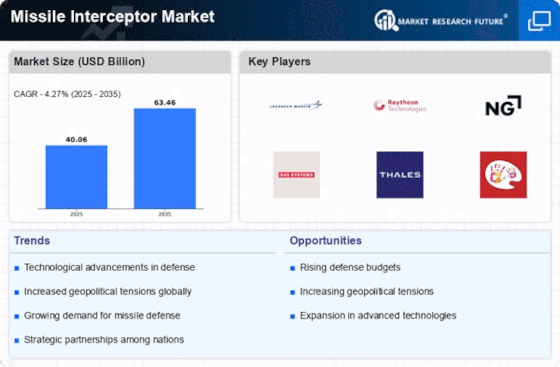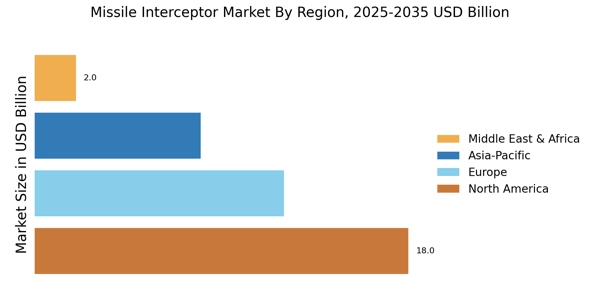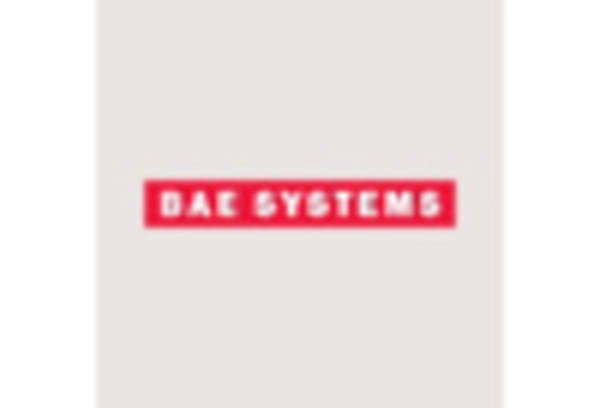Technological Innovations
Technological advancements play a pivotal role in shaping the Missile Interceptor Market. Innovations in radar systems, guidance technologies, and propulsion mechanisms are enhancing the effectiveness of missile interceptors. The integration of artificial intelligence and machine learning is also revolutionizing target identification and interception strategies. As a result, manufacturers are focusing on developing next-generation interceptors that can engage multiple threats simultaneously. The market is projected to witness a compound annual growth rate of around 6-8% over the next five years, driven by these technological innovations that promise improved accuracy and reliability in missile defense systems.
Rising Geopolitical Tensions
The Missile Interceptor Market is experiencing growth due to escalating geopolitical tensions among nations. Countries are increasingly investing in missile defense systems to safeguard their sovereignty and deter potential threats. For instance, the ongoing conflicts in various regions have prompted nations to enhance their military capabilities, leading to a projected increase in defense spending. According to recent estimates, defense budgets are expected to rise by approximately 3-5% annually, with a significant portion allocated to missile defense systems. This trend indicates a robust demand for advanced missile interceptors, as nations seek to bolster their defense infrastructure against perceived threats.
Increased Military Expenditure
The Missile Interceptor Market is significantly influenced by the rising military expenditure across various nations. Governments are prioritizing defense spending to address emerging security challenges, which includes the procurement of advanced missile defense systems. Recent data indicates that military budgets are expected to reach unprecedented levels, with several countries earmarking substantial funds for missile defense initiatives. This trend is particularly evident in regions facing heightened security threats, where nations are compelled to invest in robust missile interceptor systems to ensure national security. Consequently, this surge in military expenditure is likely to propel the growth of the missile interceptor market.
Strategic Alliances and Partnerships
Strategic alliances and partnerships are becoming increasingly prevalent within the Missile Interceptor Market. Nations are recognizing the importance of collaboration in developing advanced missile defense systems. Joint ventures between countries and defense contractors facilitate knowledge sharing and resource pooling, leading to the creation of more sophisticated interceptors. For example, recent collaborations have resulted in the development of integrated defense systems that enhance interception capabilities. These partnerships not only accelerate technological advancements but also expand market reach, as countries seek to leverage each other's strengths in missile defense. This trend is expected to continue, further driving market growth.
Emerging Threats and Security Challenges
The Missile Interceptor Market is responding to emerging threats and evolving security challenges. The proliferation of ballistic and cruise missiles poses significant risks to national and regional security. As a result, nations are compelled to enhance their missile defense capabilities to counter these threats effectively. The increasing frequency of missile tests by certain states has heightened concerns, prompting governments to invest in advanced interceptor systems. This proactive approach to defense is likely to sustain market growth, as countries prioritize the development and acquisition of missile interceptors to safeguard their territories against potential attacks.

















